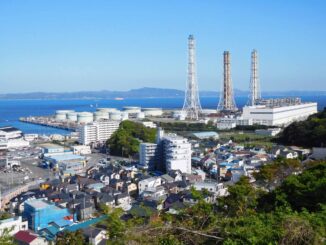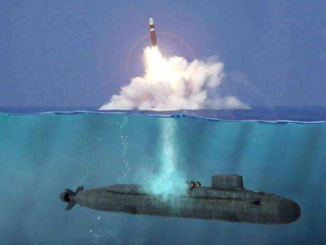
After making a fortune with a supermarket chain spanning more than 1,000 stores, Japanese businessman Shoji Numata is willing to risk his wealth on a green energy “gamble”.
The supermarket mogul is building a geothermal plant in the southern island of Kyushu, a landscape bubbling with geothermal activity.
The project, due to be completed next year, could power some 8,000 homes using hot water pressure from deep underground to make steam and spin turbines that generate electricity.
As nations worldwide struggle to source clean, reliable energy to combat climate change, Mr Numata firmly believes geothermal power is an obvious choice for Japan.
“It’s a stable power source 24 hours a day, and it has the lowest carbon dioxide emissions among renewable energies,” he said.
“I am determined to spend all the money I have for the sake of the next generation.”
Japan’s geothermal reserves are the third-largest in the world, after the US and Indonesia.
It could power more than 10 per cent of the country’s energy needs, according to some estimates, but currently generates 0.3 per cent.
A key reason is deep-rooted opposition from the country’s powerful natural spa or onsen industry, which fears geothermal power would use up invaluable hot water.
Onsen, after all, is not only culturally important to Japan, but is also a major tourism drawcard.
“It’s tough. There was an opposition movement here 30 some years ago, and a previous developer had to stop the project,” Mr Numata said.
“But we explained each detail carefully to the people and gained their understanding.
“We can coexist.”
The special power of Japan’s hot springs
Japan has struggled with energy shortages for years, after switching off much of its nuclear power capacity following the 2011 Fukushima nuclear disaster.
Without natural resources such as coal, oil or gas, Japan is the second-largest net importer of fossil fuels, much of it from Australia.
It puts the nation’s energy supply in an expensive and precarious position that has only worsened since Russian sanctions reduced global supply.
The current system is also unreliable, with many of Japan’s coal-fired plants past their prime and prone to malfunctions.
But geothermal energy is not being treated as a major alternative.
The government has implemented a modest target for 1 per cent of the nation’s electricity to come from geothermal by 2030.
The quaint mountain town of Kusatsu, in central Japan, is a prime example of how the battle for a geothermal future is playing out across the country.
Brimming with charm reminiscent of a Studio Ghibli film, Kusatsu is famous for its Yubatake, or “hot water field”, where thousands of litres of naturally occurring hot water flow through the village centre every minute.
Onsen is the lifeblood of the town, attracting some 3 million visitors a year.
It’s so important the council is leading a charge to get onsen recognised by the United Nations’ peak cultural body, UNESCO.
“People soak in the onsen and heal their body and mind in this natural environment,” ryokan owner Yukio Kuroiwa said.
“I’ve heard that onsen has been used in that way for about 1,000 years.”
Just over a decade ago, the town successfully blocked the development of a geothermal plant in a neighbouring town.
It recently passed laws that make drilling for geothermal energy almost impossible.
“If the hot springs in Kusatsu town stop running, it’ll be the end of everything for us,” mayor Nobutada Kuroiwa said.
“We would be finished. Kusatsu Onsen exists on onsen. It would be too risky to drill too close to Kusatsu Onsen.”
The former head of the influential Japan Spa Association, Masao Oyama, once referred to geothermal power as “devil energy”, although the organisation’s latest official position is to oppose “large-scale” plants and not necessarily small geothermal plants.
“We’re not opposed to geothermal power generation blindly,” Mayor Kuroiwa said.
“We have no intention to say what other onsen resorts should do, but our town has a strong allergy for geothermal power generation.”
‘We are not at odds with each other’
Even if there was a desire to utilise more geothermal energy, the approval process is seen as cumbersome — often taking over a decade.
About 80 per cent of geothermal access points are in national parks.
ENB Top News
ENB
Energy Dashboard
ENB Podcast
ENB Substack



